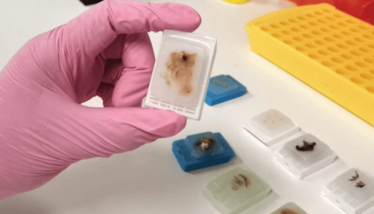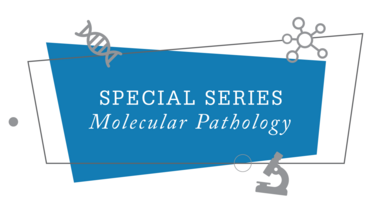Prognostic Tumor Gene Test for Ovarian Cancer
New tumor gene test reliably predicts survival chances in ovarian cancer patients

Credit: UNSW.
Survival rates in patients with epithelial ovarian cancer are poor, with high-grade serous ovarian cancer (HGSOC) accounting for around two-thirds of cases and most deaths. To offer patients a better chance of survival, we need biomarkers that provide insight into prognosis and personalized treatment options. Could gene expression biomarkers be the answer?
Until recently, gene expression findings in HGSOC were inconsistent and presented logistical barriers when using fresh frozen tissue, limiting real-world application. Now, researchers from UNSW Medicine have developed a robust and clinically relevant measure to identify ovarian cancer patients with poor prognosis using formalin-fixed, paraffin-embedded (FFPE) tumor tissue (1).
By analyzing 3,769 ovarian cancer tumor samples from the Ovarian Tumour Tissue Analysis (OTTA) consortium, they found that gene expression could reliably predict a patient’s chance of surviving five years after diagnosis, with a difference of seven years’ survival between poor and good prognosis groups. The signature was an even better predictor than age or stage of disease alone. “We were surprised at how well the assays worked on RNA from old FFPE tumor tissue blocks,” says Susan Ramus, co-founder of the OTTA consortium and lead researcher on the study.
In the clinic, the new test would enable more informed, personalized treatment decisions. Ramus says, “As patients are diagnosed with ovarian cancer, their tumors could be tested for this signature, and those predicted to have poor survival with current treatments could rapidly be included in clinical trials of alternative treatments.”

- J Millstein et al., Ann Oncol, 31, 1240 (2020). PMID: 32473302.
During my undergraduate degree in psychology and Master’s in neuroimaging for clinical and cognitive neuroscience, I realized the tasks my classmates found tedious – writing essays, editing, proofreading – were the ones that gave me the greatest satisfaction. I quickly gathered that rambling on about science in the bar wasn’t exactly riveting for my non-scientist friends, so my thoughts turned to a career in science writing. At Texere, I get to craft science into stories, interact with international experts, and engage with readers who love science just as much as I do.















